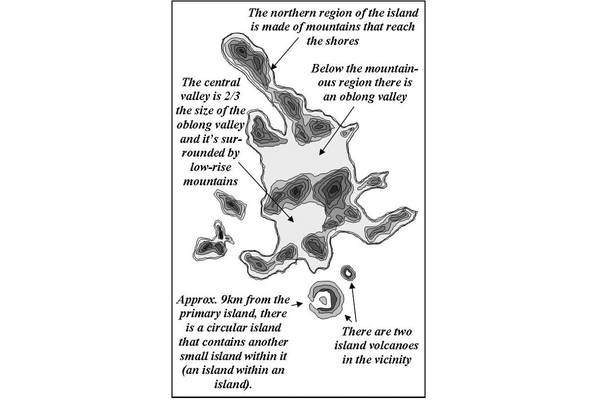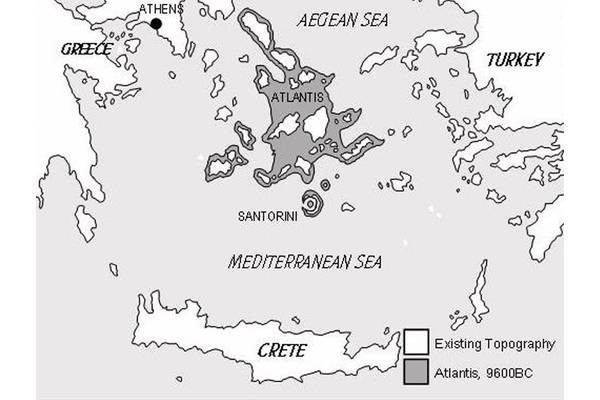

American researcher and author Christos A. Djonis exposes the location of the legendary island and discusses how close the scientific community previously came to solving this mystery
Contrary to a general belief that Plato's Atlantis may have been somewhere in the Atlantic Ocean, Christos A. Djonis, researcher and author of a new book titled "Uchronia? - Atlantis Revealed," said that analysis of Plato's work revealed convincing evidence that the legendary island is in the Mediterranean Sea and just few kilometers north of the Greek island of Santorini.
More precisely, he says, 11,000 years ago when, according to Plato, the story of Atlantis took place, many of the Cyclades Islands were connected by a flat terrain, today called the "Cyclades Plateau." This now 400 feet underwater plateau formed the body of a large island, while the modern islands of Cyclades fashioned rows of mountains that emerged in all the "right places" when those are compared to Plato's story. The northern portion of this island was entirely comprised of mountains, which reached the shores. There was an oblong valley directly below this mountainous region, and there was a second valley closer to the center of the island that was encircled by low-rise mountains. This central valley was two-thirds the size of the oblong valley. Moreover, Santorini itself, a setting of an island within an island and a place where many scholars in the past had placed the crown-city of Atlantis, falls within 9 km from the grand island, and just as Plato described.
To successfully decode Plato's puzzle, Mr. Djonis explained, "The English adaptation of Plato's account had to be dissected and thoroughly examined. Also, to ensure that the original meaning from the Greek story was not lost during translation, the English version was compared to the Greek format, which has a different syntactic structure. This evaluation revealed that simple errors and flawed interpretations by early translators led many researchers in the past to look for Atlantis in all the wrong places. Consequently, unlike all other 'discoveries,' including recent ones that amount to nothing more than speculation, for the first time ever, there is a discovery where all the physical characteristics perfectly match Plato's account."
In his yet to be published work, Mr. Djonis also explains that Atlantis was lost due to the sudden rise of the seas after the last Ice Age, and more specifically, during the Mediterranean flood cycle that preceded the flood of the Black Sea at around 8000 B.C. This worldwide cataclysm, he says, was not only responsible for the destruction of Atlantis, but also for the demise of other coastal civilizations around the world, such as the 10,000-year-old sunken city off the west coast of India, in the Gulf of Cambay.
atlantisislandrevealed.com



